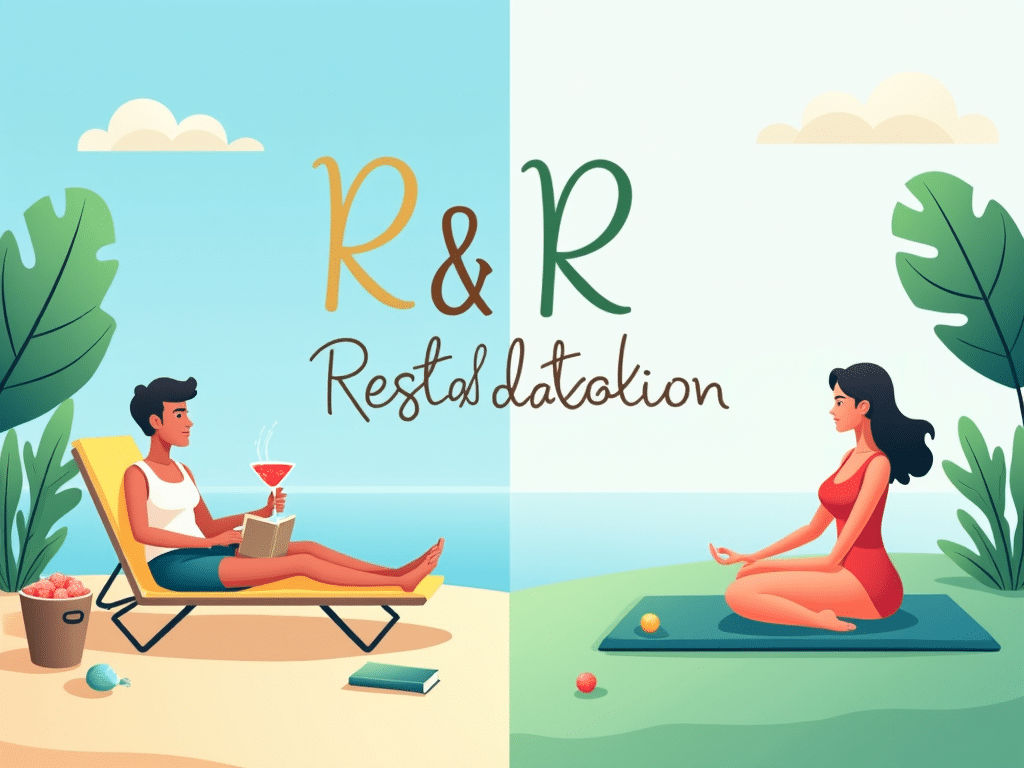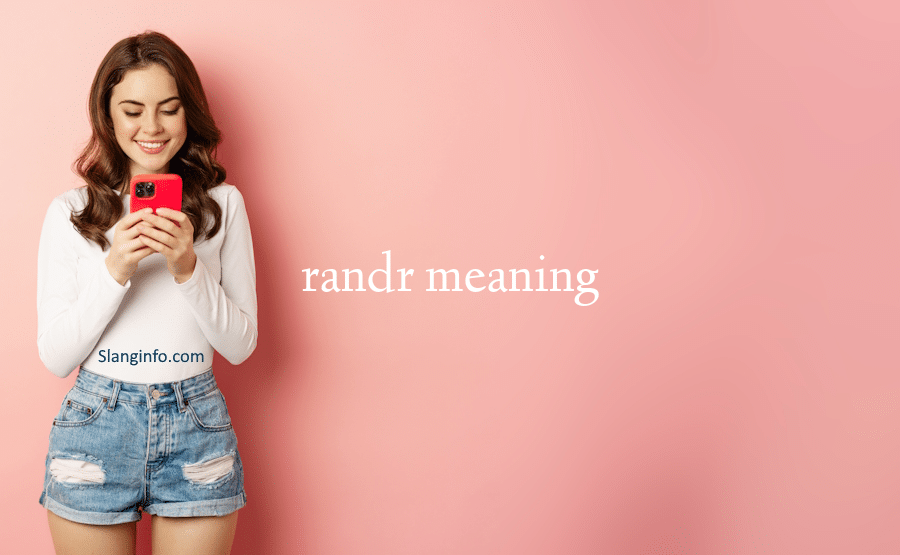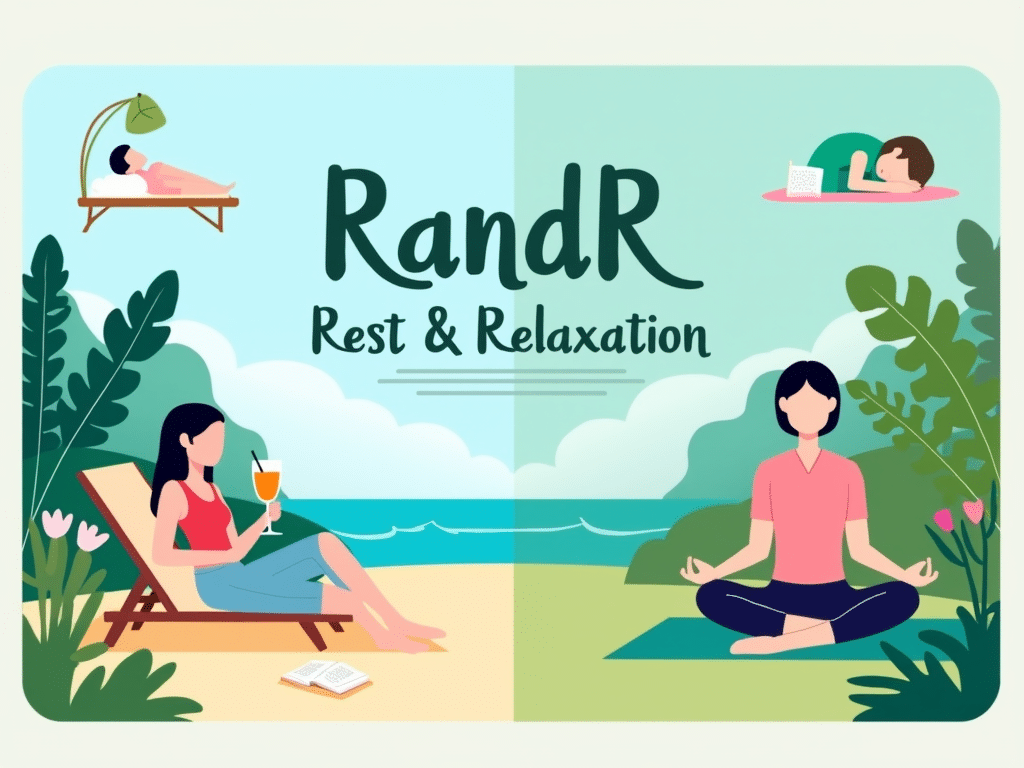Have you ever heard someone say they need some R&R or RANDR and wondered what they meant? Well, you’re in the right place! R&R is a common abbreviation that’s all about taking a break and recharging your batteries. In this article, we’ll dive into what RANDR means, where it came from, and why it’s so important in our busy lives.
| Key Takeaways |
|---|
| 1. R&R or RANDR stands for “Rest and Relaxation” |
| 2. It refers to taking breaks from work or stress |
| 3. R&R is crucial for mental and physical health |
| 4. The term originated in the military in the 1950s |
| 5. R&R can involve various leisure activities |
What Does RANDR (R&R) Mean?

R&R stands for “Rest and Relaxation” or sometimes “Rest and Recreation.” It’s a simple way of saying you need some time off to chill out and recharge. Think of it as hitting the pause button on life’s stresses and taking time to do things you enjoy.
I remember the first time I heard this term. I was a stressed-out student, and my teacher told me I needed some R&R. At first, I thought it was some kind of weird medical treatment! But once I understood what it meant, I realized how important it was to take breaks and relax.
The Origins of RANDR (R&R)
Believe it or not, R&R has some pretty cool origins. It started in the military back in the 1950s. Soldiers would get time off from their duties to rest and recover, and they called this time R&R. Over time, the term spread to everyday life, and now everyone uses it when they need a break.
Why R&R Matters

Taking time for R&R isn’t just about being lazy or avoiding work. It’s actually super important for your health and well-being. Here’s why:
- Reduces Stress: Regular R&R can help lower your stress levels.
- Improves Mental Health: It gives your brain a chance to relax and reset.
- Boosts Productivity: Believe it or not, taking breaks can help you work better when you return.
- Enhances Creativity: A relaxed mind is often more creative and innovative.
Think of your mind and body like a smartphone. Just like you need to recharge your phone’s battery, you need to recharge yourself with some R&R.
Also read: MBN Meaning
Types of RANDR (R&R) Activities
R&R can look different for everyone. What’s relaxing for one person might be boring or stressful for another. Here are some common R&R activities:
- Reading a book
- Taking a nap
- Going for a walk in nature
- Watching your favorite TV show
- Playing video games
- Practicing a hobby like painting or gardening
The key is to find what works for you. For me, nothing beats a quiet afternoon with a good book and a cup of tea. It’s like hitting the reset button on my brain!
R&R in Different Cultures

Interestingly, the concept of R&R exists in many cultures, even if they don’t use the same term. For example:
- In Spain, they have “siesta,” a short nap in the afternoon.
- In Japan, “forest bathing” (spending time in nature) is a popular form of R&R.
- In Nordic countries, “hygge” is all about coziness and comfortable conviviality.
These different practices show that taking time to rest and relax is a universal human need, even if we express it in different ways.
Also read: THAT GIRL
Common Misconceptions about R&R

Despite its importance, there are some misunderstandings about R&R. Let’s clear them up:
- R&R is lazy: Actually, taking breaks makes you more productive in the long run.
- R&R is only for vacations: You can (and should) incorporate R&R into your daily life.
- R&R means doing nothing: While resting is great, R&R can also involve fun activities.
Remember, R&R isn’t about being unproductive. It’s about recharging so you can be at your best.
Also read: RIZZ
How to Incorporate R&R into Daily Life
You don’t need a tropical vacation to enjoy some R&R. Here are some tips to add more rest and relaxation to your everyday routine:
- Schedule it: Just like you schedule work or study time, set aside time for R&R.
- Take mini-breaks: Even 5-10 minutes of R&R can make a difference.
- Find what works for you: Your R&R might be different from your friends’, and that’s okay!
- Unplug: Sometimes, the best R&R involves turning off your devices.
- Try new things: Experiment with different relaxation techniques to find what you enjoy.
For example, I’ve started taking a 10-minute “mindfulness break” every afternoon. I use this time to close my eyes, breathe deeply, and let go of any stress. It’s amazing how refreshed I feel afterward!
The Science Behind R&R
Research backs up the importance of R&R. Studies have shown that regular breaks can:
- Improve memory and learning
- Boost immune function
- Reduce the risk of burnout
- Enhance problem-solving skills
It’s not just about feeling good – R&R has real, measurable benefits for your brain and body.
R&R in the Digital Age
In our always-connected world, finding time for R&R can be challenging. We’re constantly bombarded with notifications, messages, and the pressure to be productive. But that’s exactly why R&R is more important than ever.
Consider setting “digital detox” times where you completely unplug from technology. You might be surprised at how relaxing it can be to disconnect for a while.
Expert Tips for Effective R&R
As someone who’s studied the importance of rest and relaxation, here are my top tips for making the most of your R&R:
- Be present: When you’re relaxing, really focus on it. Don’t let your mind wander to work or worries.
- Mix it up: Vary your R&R activities to keep things interesting.
- Don’t feel guilty: Remember, R&R is necessary, not a luxury.
- Start small: If you’re not used to taking breaks, start with short R&R sessions and gradually increase.
Conclusion: Embracing the Power of R&R
In our fast-paced world, taking time for R&R isn’t just nice – it’s necessary. Whether it’s a quick break during your day or a longer vacation, giving yourself permission to rest and relax is crucial for your well-being.
Remember, R&R isn’t about being lazy or unproductive. It’s about taking care of yourself so you can be at your best. By incorporating regular R&R into your life, you’re investing in your health, happiness, and overall success.
So the next time someone asks you “HBU” (How about you?), don’t be afraid to say you’re taking some much-needed R&R. Your mind and body will thank you for it!
Now, why not take a moment to think about how you can add more R&R to your life? After all, you deserve it!







